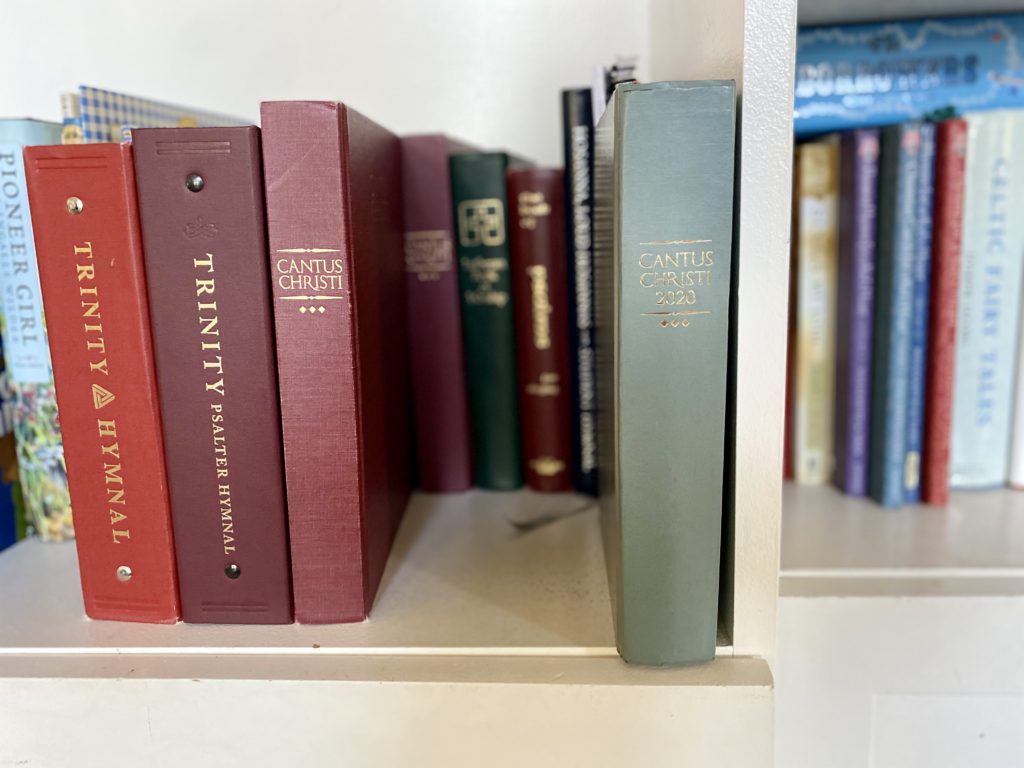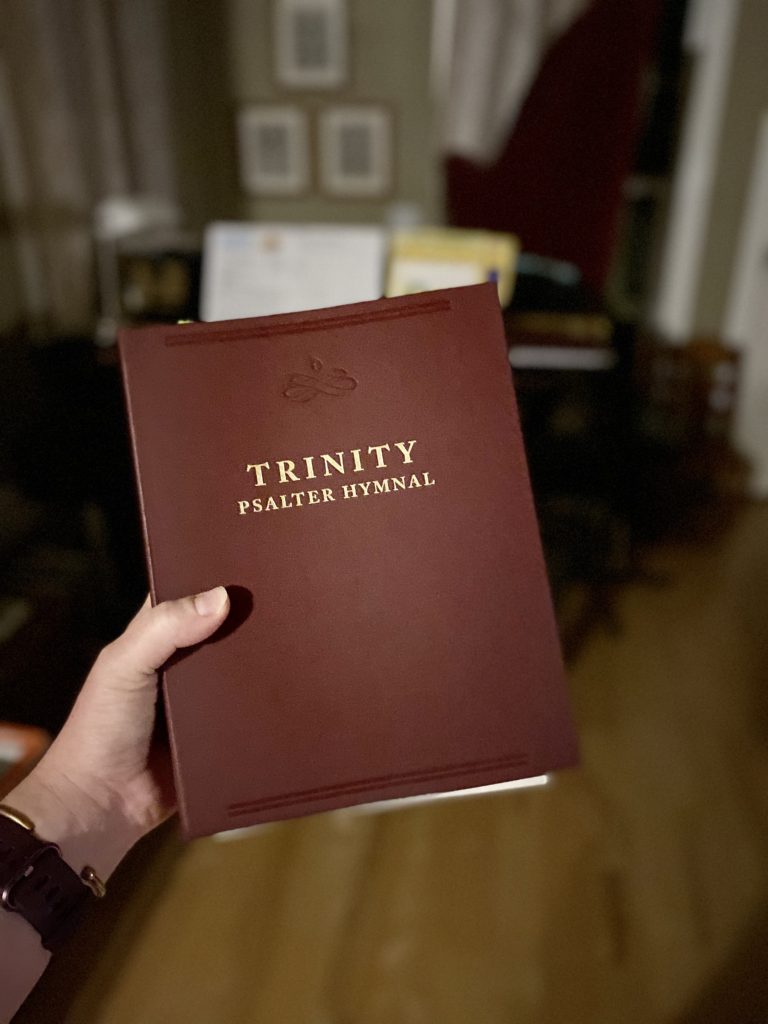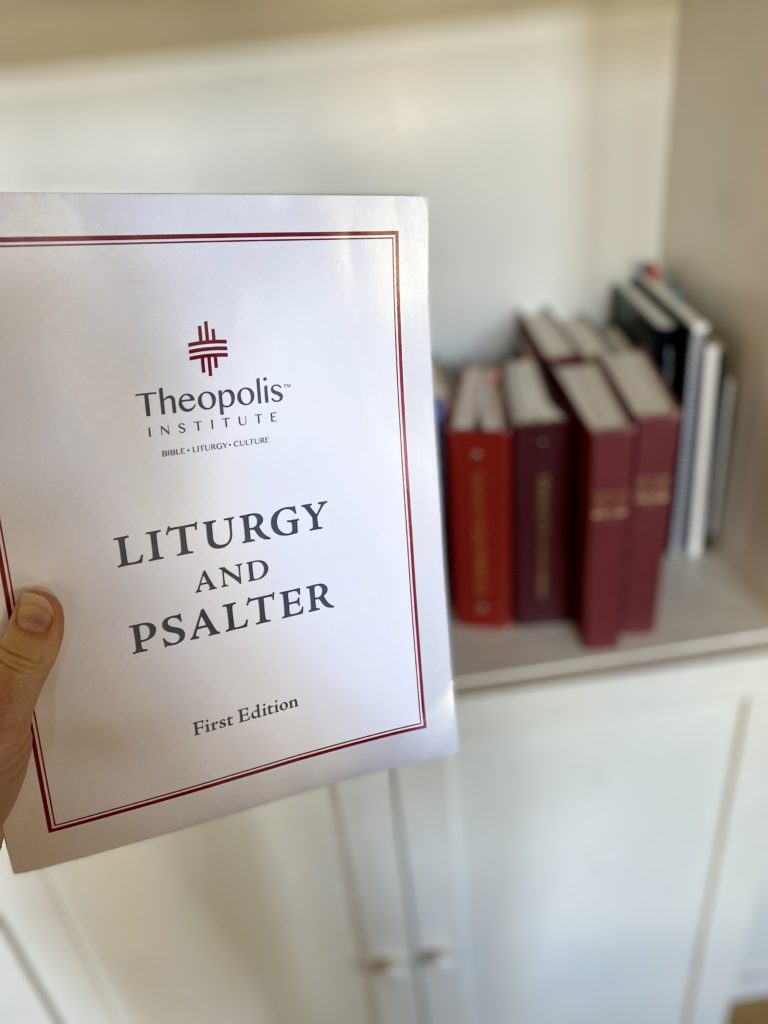(…continued from Aletheia, part six…)
First we talked about who we are as each being a particular helpmeet given to our particular husband, and then we talked about the spiritual side of being a wife who is growing in virtue—and I think they spiral together beautifully, when we seek to bless and help our husbands through the work of our hands and prayers, which both require virtues abundant… and now we turn to a third aspect of who we are as wives.
We read in Proverbs that “The wise woman builds her house, but the foolish pulls it down with her hands.” (Prov 14:1) And again: “Through wisdom a house is built, and by understanding it is established; by knowledge the rooms are filled with all precious and pleasant riches.” (Prov 15:6) So to begin with, let me say that as we are talk about wise domesticity, I think those two Proverbs are a really good foundation for the conversation. In Building Her House, Nancy Wilson asks, “What is it that makes our homes truly pleasant places? Without a doubt, it is godly wisdom. When wisdom is at home, home is a delight.” (Building Her House, Nancy Wilson, p99) Extrapolating the opposite, I think we can also infer that when there is folly at home, home is unlovely.
Again referencing Titus 2:3-5, we look to the Apostle Paul for wisdom. This is where we read that older women are to “be reverent in behavior, not slanderers, not given to much wine, teachers of good things”—and then we can ask, what are the good things that need to be taught? Wisdom wants to know so that we can build our house! We want to understand so that our home can be established! We want to grow in knowledge so that the rooms of our domain will be full and pleasant. Well, we read on to see that the older women are to “admonish the young women to love their husbands, to love their children, to be discreet, chaste, homemakers, good, obedient to their own husbands”—and why is this? Paul gives us the exact reason: “that the word of God may not be blasphemed.” (Titus 2:3-5)
It isn’t so that we will have the best house on the block, the most curated Instagram, the cutest family walking in to church on Sunday… It isn’t even so that we will be known as a fantastic wife or as a super godly Christian. Nope. The reason the older women are to teach the younger women these things is for God’s glory, and to uphold His holy Word.
When I was young, I always found it interesting that young women need to be taught to love their husbands and to love their children. At least those things seemed to be such natural things—even if we struggle with discretion or chastity, goodness or domesticity or submission. Loving my husband and children? Why would I need taught that?! As I have gotten older, I have realized that my understanding of love has grown, and I now know that loving my husband and loving my children actually takes practice and discipline! Learning how to love these particular people given particularly to me is a lifelong education as a wife and mother. And I do not want to grow weary or lazy in the pursuit of this good work. So having older, wiser women to remind me—admonish me—to love well and love specifically and love in truth is a real gift. And as I get older, I get to link arms with the younger women to remind them of these truths as well.
Love your husband. Love your children. By doing these things you will proclaim the purity and verity of God’s Word.
In 1 Peter we read that we are to “be of one mind, having compassion for one another, loving one another, be tenderhearted, be courteous, do not return evil for evil but rather blessing…” (and later), “be serious and watchful in your prayers. And above all things have fervent love for one another, for love will cover a multitude of sins. Be hospitable to one another without grumbling. As each one has received a gift, minister it to one another, as good stewards of the manifold grace of God.” (1 Peter 4)
Who we are in our emotional, mental, and spiritual selves is who we are in our active, physical selves as well. We live our theology! It comes out in our thoughts, words, and actions. What you believe necessarily shapes how you live. So these passages from the New Testament are telling us as Christian wives how we are to live out our theology in wisdom. I am still in the mid-generation of womanhood: I have older women who teach me, and I have younger women who ask to learn from me. But right here are the most solid things I have both learned and now teach as a Christian wife: I am to be reverent, chaste, a teacher of good things; I am to love my husband and love my children; I am to be discreet, home centered, and obedient to my husband; I am to be compassionate, loving, tenderhearted, courteous, prayerful, forgiving, and hospitable. (And any of it, by God’s grace alone.)
A number of years ago, I started this blog, calling it Joyful Domesticity. I knew that those were two words that I needed to have constantly in front of me to remind me of my duties: I was called to be joyful and called to pursue the arts of domesticity. I would dare say that those many things I just listed off could boil down roughly to joy and domesticity. Those two things are indescribably broad, yet beautifully narrow.
Allow me to share with you an excerpt from an essay called, “The Emancipation of Domesticity”:
But when people begin to talk about this domestic duty as not merely difficult but trivial and dreary, I simply give up the question. For I cannot with the utmost energy of imagination conceive what they mean. When domesticity, for instance, is called drudgery, all the difficulty arises from a double meaning in the word. If drudgery only means dreadfully hard work, I admit the woman drudges in the home, as a man might drudge at the Cathedral of Amiens or drudge behind a gun at Trafalgar. But if it means that the hard work is more heavy because it is trifling, colorless and of small import to the soul, then as I say, I give it up; I do not know what the words mean. No; a woman’s function is laborious, but because it is gigantic, not because it is minute. I will pity Mrs. Jones for the hugeness of her task; I will never pity her for its smallness. ~ G.K. Chesterton, from “The Emancipation of Domesticity”
I think the words “gigantic” and “hugeness” are lovely there. The height, depth, and breadth of our work as wives and keepers of homes is undoubtedly enormous. Nancy Wilson says that “It’s one thing to have strong views about the glorious calling of vocational domesticity; it is another thing altogether to live it out, day after day.” (Building Her House, Nancy Wilson, p39) Yes, it is exhausting. But it is not exhausting because it is small, unimportant, or boring. It is nothing short of the business of the entire world, bundled up into one home, over which we as wife are regent. It is our job as keeper of the home, or homemaker, to keep it and make it. Not as a place to constantly be heading away from, bustling hither and yon, but as the place to which everyone is magnetically pulled. A place to gather and feast, to celebrate and rejoice, to grieve and mourn, to study and learn. Home is not just where we rest at night: it is where we create community, foster fellowship, live life.
Domesticity is a broad field and encompasses all of life in and around the home. We could go back to Proverbs 31 again, and see the incredible skills and talents and capabilities exhibited in her creative, innovative industries… but let me simply say, we can not create a to-do list (or a to-learn list) from Proverbs 31. That is not what we are called to do with this passage of Scripture. Rather, it is a description meant to inspire us toward our own domestic joys! That woman is clearly enjoying herself, flourishing and prospering, and using what gifts, resources, and opportunities God has given her. So we ought not individually feel burdened to produce something comparable to the Proverbs 31 description (what a relief!), but exhorted to follow the lead of her attitude, her industrious nature. No two homes will be exactly alike, but it ought to be our goal to have homes which are well-managed and which well-represent the family living there. Nancy Wilson said, “if we want to change the world one home at a time, then we have to start by taking dominion of our own homes.” We must determine to become skilled at the tasks God has assigned us.
Psalm 128:3 says, “your wife shall be like a fruitful vine in the very heart of your house.” The wife is central, at the heart of it all. What a privilege! What a responsibility.
So in the heart of our house, we are to imitate our God, the Maker. We are to be making our homes, taking dominion there, subduing the dust bunnies and laundry hampers and our own selfish ambition. We understand that without Christian homes, there can be no Christian culture: each one of our homes is a building block in the big project of Christendom. Keep the big picture in view. And be a woman who fills your home with good things, pleasant things, necessary and true and lovely things. Glorified things! Hot meals, cold drinks, the best stories, good music, birthday gifts, laughter, justly metered work, limitations and consequences, cleaned messes, songs and back scratches. A woman who fears the Lord provides stability, comfort, beauty, and order in her home. This is wisdom. And it is a tall order, requiring faith, hard work, and a vivid imagination.
What I can lose sight of so quickly is that it isn’t about me doing or being these things. It is about Christ in me, accomplishing good works He prepared for me, in order to further His kingdom. It is about the work He accomplished for me as my Redeemer, and now I get to live in submission to Him. We could list off all the things we do as wife and homemaker: but none of it matters if I am not given over to the Holy Spirit.
So the third truth about who we are as wives is that we are given the vast dominion of the home to subdue, cultivate, craft, fill, and share. How we each live that out will necessarily look different from home to home—but living it out in wisdom will build your home and bless your husband when you are focused more on the work Christ did for you than on the work you now do for Him.
As wives, we get to shine the truth of the gospel by seeking to be obedient, wise, virtuous, helpful, domestic artists ~ all for the furthering of God’s kingdom.
(…continued in Aletheia, part eight…)



